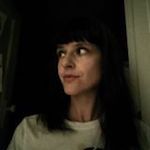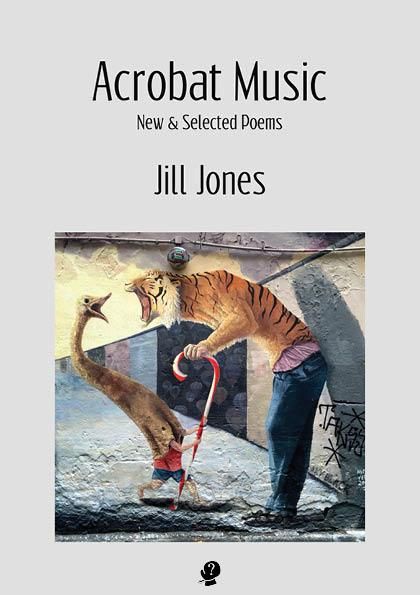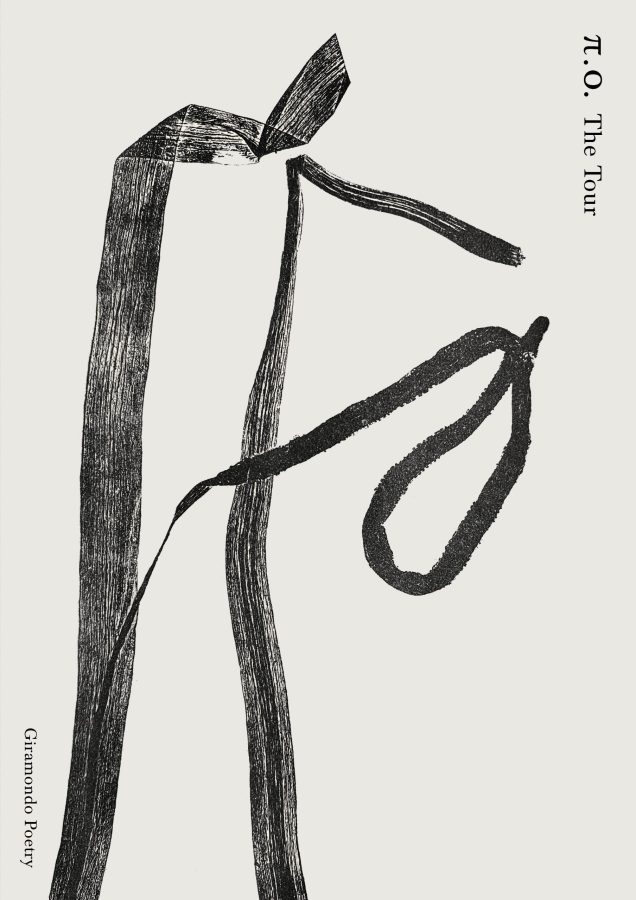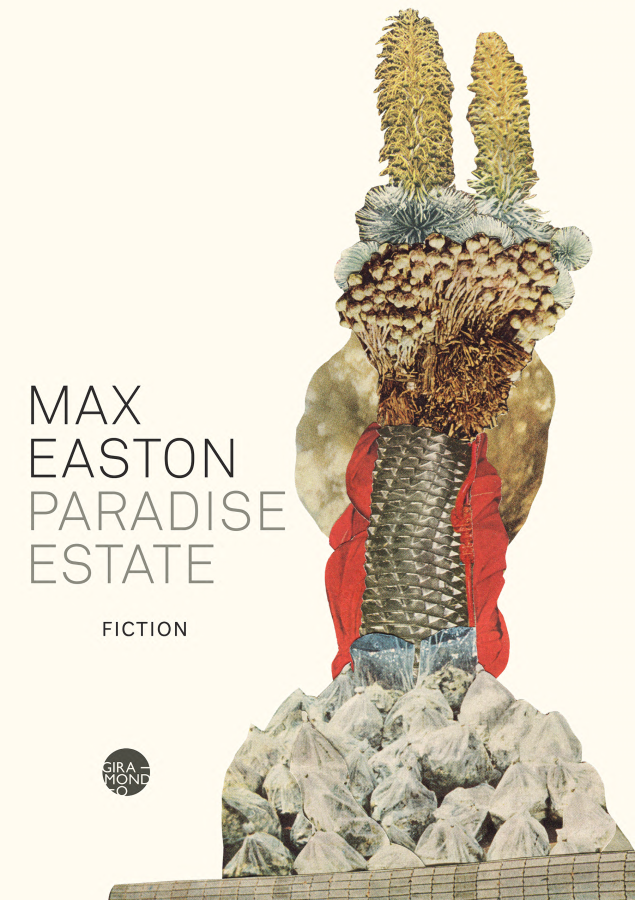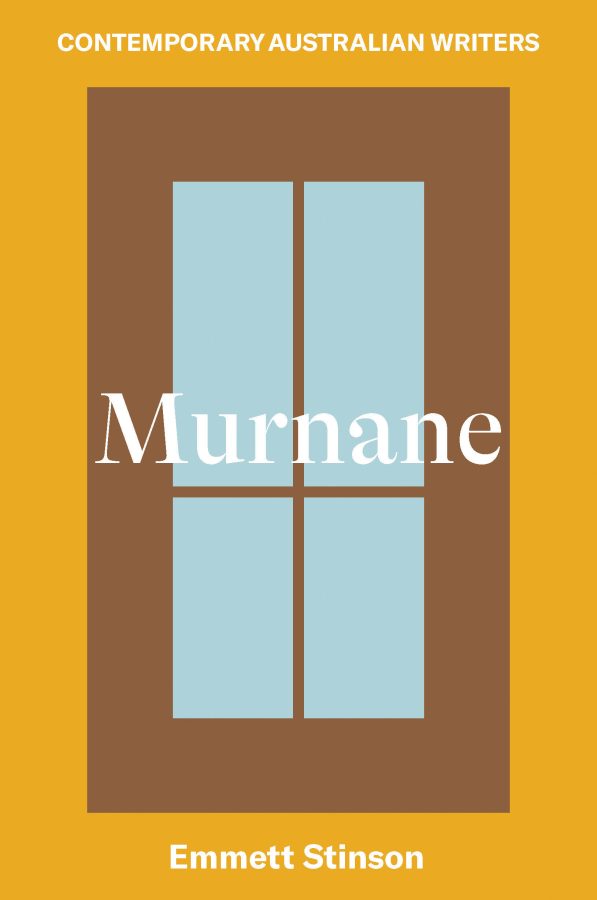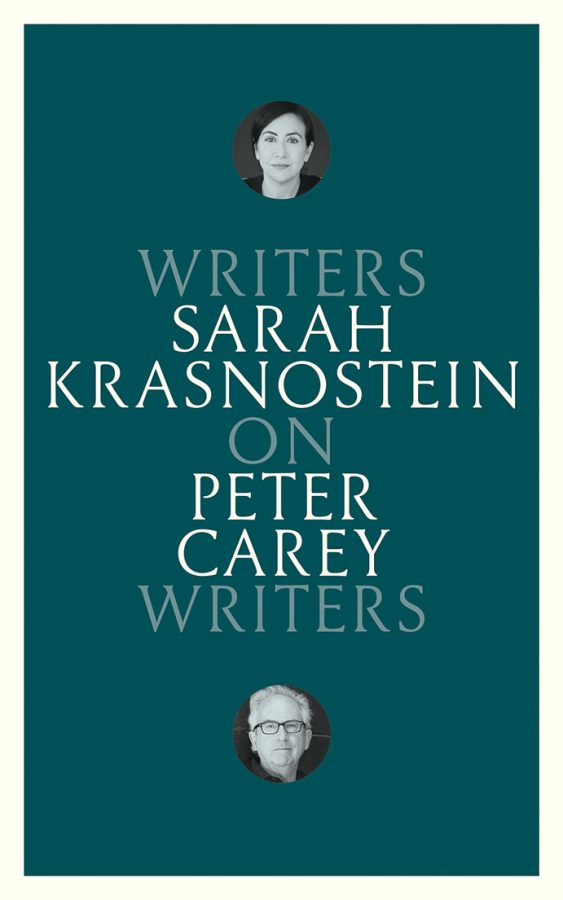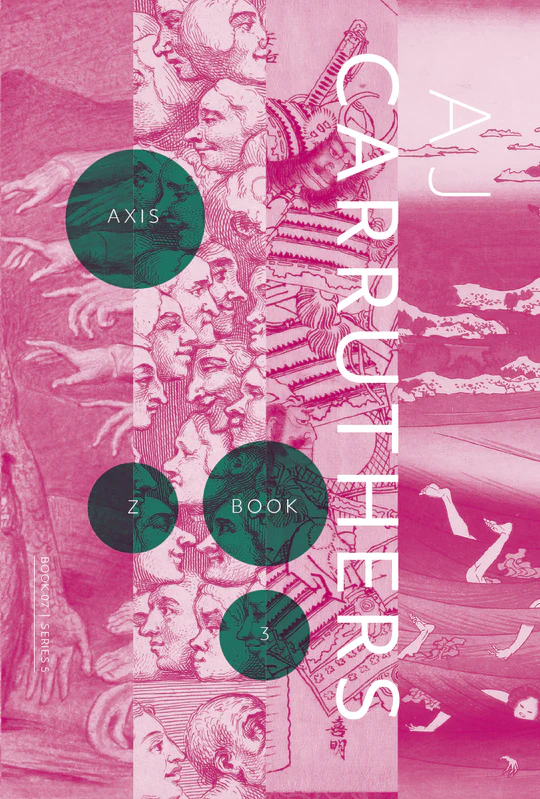Oscar Schwartz is a contemporary Australian poet, writer, and researcher currently based in Darwin, Australia. His poetry and research offers wry and nuanced investigations of the figure of the human, and its entanglements within technological and automated environments. He published his first book of poetry, The Honeymoon Stage, with Giramondo Press, in 2017; he is currently working on a book of essays, forthcoming with Scribe in 2019. He has also edited the memoirs of Eva Slonim, a child survivor of Auschwitz, for Black Inc in 2014.
He represents a new generational voice in contemporary Australian poetry, concerned with a poetic of communication, affect and work, unique to an increasingly virtual and networked mode of life in the 21st century. He is part of a larger, online, global community, contributing to an emerging genre of Internet poetry, which inventively engages with constraints offered by social media and other online platforms.
This interview was conducted in 2015, as part of a larger ARC funded project, led by Justin Clemens, titled Australian Poetry Today.
*
Sandra D’Urso: I’m going to start with some simple questions, and the first one is what are the biggest influences on your poetry?
Oscar Schwartz: It varies all the time but, in terms of right now, it’s the text that I read on the Internet, being on Twitter, being on Tumblr and seeing the way that language is used there. So, I guess the Internet and friends I’ve made on the Internet in the last three years have been the biggest influence on the type of poetry I’m writing now.
Then there’s my poetry teacher at Monash University, John Hawke who is the first person that really got me into poetry. I hadn’t really read any poetry before the age of 19, and his understanding of poetry is pretty much in the modernist tradition. That was something that I found amazing and also highly confusing and challenging. I think I was more intoxicated by the biographical details of a lot of the poets we were learning about than the actual texts themselves. The texts were kind of impenetrable but because these people lived such interesting lives I thought there must be some sort of secret in there. A lot of those texts still are impenetrable for me. I do think that the biographical details should be read in conjunction with them. So, those are my two main influences.
So how would you describe Internet or meme poetry?
The interesting thing about Internet poetry is that the form is very much dependent on the platform that you’re using. So, on Twitter, the constraint is built in 140 characters. And obviously, there are ways to get around that. You could type out a poem and take a picture of it and then put it up.
The thing I think about a lot is how these platforms, which are commercial enterprises essentially, build in artistic constraints for writers to use without necessarily meaning to. Twitter is the clearest example. And then, on top of the technical constraints there are also the cultural constraints of whatever platform you’re on. If you’re writing on Reddit or if you’re writing on Facebook or if you’re writing on Twitter, there are different jokes and memes and ways of talking and slang that are really specific to the different platforms. I like observing it all: different cultures that exist on the internet on different platforms and the way that the digital environment and the actual program architecture influences the way people use verbal language.
The other thing is, it’s a much more verbal environment than poetry potentially written for the page was before the Internet, in the twentieth century. It’s very verbal, and I think that a lot of the texts are meant to be ephemeral.
When you say verbal do you mean you can hear the voice?
I think the voice is kind of interesting. I don’t think there’s a very strong orthography. I don’t think the voice comes out in terms of you hear it as a voice. What you post disappears into the feed, kind of like a voice; it is there for a moment and then it goes away. There’s very much the sense that you’re not writing this for eternity, you’re writing this for right now.
So, we’re losing the idea of an ideal reader, maybe?
And also maybe the idea of an ideal work or the masterpiece book that becomes a cultural object that exists forever.
Do you think that Internet platforms help keep the idea of ‘author as genius’ at bay? Or do they reproduce the genius myth differently?
I think they do it in a different way. The internet is really good at picking up people for no specific reason other than luck and circumstance and elevating them. This person is the genius of Twitter, this person is a genius of Facebook and so on. But the actual content of their work is not so different to what others might be doing. Like there’s no master work or masterpiece – it’s more like the performance of whatever this personality is, it becomes the genius. It’s almost more focused on identity than the other way.
And the focus is on the performance of identity rather than the poetry itself?
Yeah. And they kind of all go together completely.
So, in that sense, do you think that Internet poetry might be more amenable to being performed?
Well I think it’s all performance. On Twitter you’re typing real time, people are reading it real time. I think it is probably less amenable to printing off and reading later to a crowd because it loses so much. It loses the juxtaposition of where it exists in the feed — you can have a hilarious tweet in between the advertising for a sports brand and then a CNN update about the war in Syria. The whole environment changes the way that it is performed. I think it’s quite difficult to perform Internet texts.
You said you started off admiring the modernists but more so for the kind of figures they were, their biographies, rather than their work. Could you talk about what kind of poetry you started writing and how that links to modernist influences?
The way John taught was that every week we would learn about a poet who was representative of a movement and then someone in the class would have to emulate them the following week with a poem that they would perform in front of the class. So week one was William Blake but no one had to copy William Blake because he was just the precursor to what we were going to learn about. He was like the first proto-modernist, according to John. And then the following week was Rimbaud and no one wanted to go first because it was too scary. So this guy in my class elected to go first and he was kind of a bold young guy and he wrote this 110-line Rimbaud poem emulating The Drunken Boat and he read it in front of the class. It took him twenty minutes to read and everyone was silent after. I thought it was amazing, but our teacher just said, ‘well wasn’t that horrendous’. And it was like, oh my God, that’s so mean. He was like, ‘which was perfect because the poem that you based it on is horrendous as well!’ That was his manner.
I got Aimé Césaire, which is kind of ridiculous considering how different our lives are. He was a Caribbean man and he was a political activist and I just grew up in Australia in a pretty comfortable environment and was not at all politically engaged at that age. So I was learning that the capacity I had to emulate his work was purely on an aesthetic level because I couldn’t pretend to live his life experience. Also, it was translated from French; so, to emulate him, I wrote kind of highly aesthetic works, drawing from memories of my life because that’s what he did but his memories just happened to be a lot more political than mine were.
Do you consider issues of race and class while you’re writing your poetry, or is it something you notice in hindsight?
My Jewishness informs everything that I write in some way. I don’t think necessarily directly but it is something always working in some way, maybe a heightened awareness of difference. When I write I try to be aware of my position as a writer, as in who is the writing for, and who might it offend. Other people might not consider these things but I try to.
Does your attention to race and difference arise from your upbringing?
I’d say it’s inherent in my upbringing and the people that I associate with and friendships. The thing that makes me most aware of the position that I’m in as a male writer, is the fact that I have three sisters growing up as very strong feminists, and my mum as well. When you are able to see another paradigm that you’re not a part of, and understand it, then it opens you up to understanding more about race, gender and class issues. I think if you really understand one of those forms of injustice it helps to understand, or at least empathise or be open to listening different types of life experiences. Also, being Jewish and having Holocaust survivor grandparents also indirectly shapes my capacity to understand how racism works.
Do you write about your grandparents’ experiences?
I did a lot when I was a student. It is a big part of my life, and central to my cultural heritage. Between 2010 and between 2012 I helped my girlfriend’s grandmother write her memoirs. I went to Jewish school. Because Melbourne is one of the biggest Holocaust survivor community outside of Israel, the whole Jewish community here has experienced or has been affected by the Holocaust. When you go to a Jewish school in Melbourne a certain narrative about the Holocaust is really shoved down your throat at an age when you’re probably not ready to hear about it. When you’re like age 15 and 16 you have to do Holocaust studies and you do excursions to the Holocaust Museum. I felt resistance to it, probably as a form of emotional protection. So writing the memoir really helped me understand the Holocaust, which had always been a big part of my life, new way.
Would you describe your poetry about your grandparent’s experiences of the Holocaust as a kind of memorial? Is poetry a way of bearing witness?
It’s hard to say now. At the time, it was a highly personal process. A lot of the stories I heard were sometimes conflicting and sometimes mythologised; you don’t know what’s completely true and what’s not true and so it was more of a process of, this is my understanding of what these stories are and what this family history is and it’s like a way of making sense of it and a certain way of writing about it.
Returning to the modernists, would you say there has been a progression in your tastes in poetry?
Definitely. The other key thing that happened when I was at university was that John Hawke organised these small poetry symposiums at Monash and he invited a lot of contemporary Australian poets and I went along to one of the meetings. I would have been doing the second semester – so, Advanced Poetry Writing – and Michael Farrell was there and we started chatting and he said, you should come to these poetry readings that we do. I started going to them and I met a whole community of Australian poets like Michael and Fiona Hyle, Corey Wakeling, Duncan Hose, Astrid Lorange and lots of others. All these people who are very welcoming, super encouraging, and really lovely just made me feel excited to be part of some sort of community. Then I started reading their poetry and the poetry that they were interested in and it really changed the way that I was writing poetry.
What shifted? What were you doing before meeting this group of poets?
I’d say that my poetry before was much more romantic and naïve and I think that’s what John, my teacher, really liked, even though he was like a modernist who liked Zukofsky. He said he just liked the naivety of what I was writing. I felt like I had to make my writing more complex in order to become a real poet and he discouraged that. He said just keep your own voice. But of course, it’s all part of the process. I started writing much more dense and complex texts that potentially didn’t really make sense to me, how I was writing them, what the purpose of writing like this was.
Was it stream of consciousness?
Yeah, stream of consciousness, trying to broaden my vocabulary, and experiment more formally and try procedural type of stuff.
So, experiments?
Yeah and I guess the focus turned from content, like what I was writing about, to more formal experimentation, linguistic experimentation.
So that was the transition for me. I now realise that their life experience – the community of poets I was introduced to through Michael – their understanding of what language is and how using it in certain ways, to them is radical. As a reader, I could see and appreciate how certain disjunctive uses of language can be and are radical. And I still believe this strongly. I learnt so much from reading and listening to these contemporary Australian avant-garde poets. But as a writer, to me this radical gesture didn’t cohere on a personal level. When I was a certain age I tried emulating it, but it didn’t work for me, and my experiences. Then I met a group of people on the Internet and their form of writing was a lot closer to what I was doing.
It’s almost as if, for a certain post-modernist frame of mind, language is a way you can deconstruct your identity and present it like this complete indecipherable kind of matrix, like mess or something. Whereas if you’ve grown up on the Internet and performed your identity online, on Facebook, on MIRC chat, or that type of thing, you’re already fractured as a person, you’re already someone who is performing their identity online and so you’re not interested in further fracturing yourself, you’re interested in performing a cohesive romantic self I guess. That’s what a lot of people who I started speaking to and writing to online were doing. It was as clear and concise and naïve communication of the experience of being human as possible. That was the major difference.
Can you talk a little bit about the metaphor of the UFO in the garden?
So, it’s not my metaphor, it’s Tao Lin’s metaphor and he says that the internet is like a UFO that arrived in his back garden one evening and his parents, because they were the parents or the first people to go out and check it out in the garden, they thought it was a little bit interesting, they saw its utility, but then they more or less went on with their lives. Whereas he went outside and was so captivated by it that he completely integrated it into his life, into his identity and I think it’s very apt. It’s the same experience as mine and I guess the Internet allowed me to find like-minded people to write about these sorts of things with.
On an online panel of Internet writers, you asked the others if a short attention span is the new avant-garde? Do you think there’s something in that short meme structure that reveals something crucial about a contemporary avant-garde that hasn’t been properly theorised or understood yet?
I’ve done a lot of thinking about this stuff since then. The first thing I’d say is that creating something as a new avant-garde necessarily puts it in to the context of the old avant-garde. But maybe avant-garde is the wrong word to understand these new practices. The other thing I would say is rather than a short attention span I would say that people who are working on the Internet, which is all of us now, don’t have a shorter attention span. Our attention bandwidth has grown enormously, it’s just more diffuse; diffused attention over millions of windows, 35 open tabs, listening to music, watching YouTube, while writing something and emailing at the same time. They’re all short acts but the amount of attention bandwidth that it requires is enormous. I guess the artist’s role within that type of environment is to get someone’s attention within a diffused attention environment. Attention is the commodity; it’s an amazing thing to get someone’s attention online because the whole world is competing for it. And so when I first started I was trying to subvert the way it works. I was handwriting poems in the language of the Internet – so very naïve, almost spam like – and then taking pictures of them on my phone and uploading them onto a Tumblr blog. That was how I met this whole community because people started sharing them.
You’ve got lots of humour in your poetry…
Yeah, humour is central to my life and friendships, and so it’s always going to be an aspect of any type of writing or work that I do. I recently had a Twitter account but that is now coming to an end, probably in the next two weeks. It’s been going for a year where I’ve pretended to be the first woman on Mars. Her name is Evghenia on Mars First and she built a rocket in her grandmother’s back garden and flew it to Mars and now she’s been living there for a year and her water is running out. She’s going to die in two weeks unfortunately. But she has 6000 followers on Twitter, which is hilarious because I have like seven hundred. She’s so much more popular than me. No one knows it’s me. You would probably be like the fifth person who knows that. I’m only going to tell people once the experiment is over, but maybe I just shouldn’t at all.
Are you going to have a funeral?
Well it’s going to be sad. She has a lot of fans that are deeply committed to her life. I guess this is like key Internet practice for me. It’s the performance of someone else in an alternate reality that has this community of people who are devoted to her who don’t know me at all. I am having an email exchange, on behalf of Evghenia, with this woman in America who is running a feature piece potentially for National Geographic. It’s on Evghenia and she has no idea it is me and no one will ever know.
I’m also starting a new project called Exquisite Tweets. I’ve made a Twitter account and I’m going to send a friend, Joanne McNeil, she’s a writer in a America, the password and login details and she will write a tweet, on day one of the project. She’ll then pass that on to a friend who will then write the next tweet and then 365 days in, the account will stop, and a list of the people who have contributed will be published as the final tweet. It will be like a 365-line poem written by people all around the world, just by me sending off one email.
Are the Tweets related, or is it just whatever people feel like writing at the time?
I think no constraints. People can use it to advertise their own personal website. I mean it’s kind of risky because people could be offensive.
Can you describe the sort of risks involved? How might an online experiment change poetry into a form that is about risk taking?
For sure. I mean Evghenia is probably more popular than I am on Twitter because, like I was saying before, I am aware of my position as a white male and there are things I just don’t say and arguments I don’t get into because I don’t want to. I don’t feel comfortable. But with her I can just say a lot of things. She’s a lovely person and she never offends anyone but she says things I just would never say and so that’s the certain freedom. But a lot of my moral compass is carried over to Evghenia; I have no interest in making her a racist arsehole or anything, because that would bring me and the world no joy.
I was reading about this guy called Darius Kazemi who makes a lot of Twitter bots and in every Twitter bot, he makes certain blacklisted words and phrases that the bot is not allowed to tweet because they’re offensive, they’re racial slurs etc. etc. Although he acknowledges that the bots are not him, and have their own bot identity, he still understands his creative and moral responsibility to limit them from abusing others. I feel the same about Evghenia.
Can you explain the Twitter bot?
So, a Twitter bot is an automated Twitter account. Essentially what that means is it tweets on its own according to a program and a data set. There are different types of data that a bot can use to tweet. It might be a pre-established corpus of text. Or it can take data directly from the Twitter data stream itself. For example, there’s a bot called @pentametron that searches Tweets that are inadvertently written in Iambic pentameter, finds couplets amongst them that rhyme, and then retweets them together.
Who creates these bots?
There are lots of bot makers. I find Allison Parrish, Ranjit Bhatnagar and Darius Kazemi super interesting. The community of artists, poets and programmers that make poetic bots is really great in general. Many are very politically engaged and use their bots to engage in political resistance. I find that super interesting in terms of the idea of the bot’s agency, how we relate to it as a person, how you have to encode your politics into the bot itself, how all the algorithmic systems have embedded politics, how all the algorithmic systems are ideological and political, even though they’re often presented as if they’re not.
Is there a poetics associated with the Internet that stands out for you?
Kenneth Goldsmith’s Uncreative Writing says humans are computers who just need to repurpose and reshuffle language because with the Internet there is so much language that new language doesn’t have to be created. It’s an interesting statement but I think it’s wrong because it’s a modernist gesture and I don’t think the Internet is a modernist apparatus. I think it’s an ancient apparatus. I think the Internet as an idea existed way before modernism.
It is like talking around the campfire – the world’s campfire. That’s what I think the Internet is and why you have the mixture of high culture and low culture, a sense of community, and a sense of morality. I think that Goldsmith trying to frame the Internet as a modernist device is just wrong. Therefore, his whole poetics of the Internet just doesn’t work.
I like a poetics that speaks the language of the internet rather than trying to emulate its machinic processes. It’s the opposite of typing out the New York Times and publishing it as a book.
So what are your impressions of Australian poetry today?
It’s quite difficult for me to answer that.
I wrote my own thesis on two Australian poets, on π.O and Chris Mann. Again, I think it’s kind of generational but I just couldn’t really get into a frame of mind that allowed me to fully grapple with Mann’s complex language and poetics. But I loved π.O; I think his poetry is incredible.
What I love about π.O.’s poetry is its sense of purpose, which sometimes feels very rare in poetry. Its purpose is to give voice to those that are otherwise unheard. I think 24 Hours is one of Australia’s only epic poems, in the truest sense of the word because it takes a world, which was Gertrude Street in Fitzroy in the70s, 80s, and 90s and then gives voice to that entire world in poetic form. It’s like a historical document. It’s incredible. I mean if you were studying Fitzroy in the second half of the twentieth century, in two hundred years time and you came across that book it would be the most amazing historical document ever! Everything about his poetry makes me love reading it, so his sense of purpose, his energy, his ethics, his humour.
How important is popular culture to your poetry? And, how does an aesthetic of the banal emerge as a type of humour in your poetry, such as in ‘should I watch Game of Thrones’?
It’s in my poetry because it’s what I consume. I listen to popular music, so it’s just my life and if I’m writing about any aspect of my life I guess that comes through. So it’s kind of as simple as that. And I guess the instinct to write that poem was, well numerous instincts, but everyone is talking about Game of Thrones all the time. I don’t watch it and I know if I watched it I would like it. I know I would. But it’s a truly existential dilemma because if I start watching Game of Thrones it will be part of my life and it will become a personal reference point for me, in terms of how I am going emotionally. It’s like when you really get into any TV series, it becomes very much a part of your life. I have TV series that I have watched when I was 19, 20 like the West Wing or Sopranos and when I think about those stages of my life, like a good novel as well, I associate emotions from that show with that stage of my life. So it’s like, although Game of Thrones is this big pop culture thing, it’s also going to be incredibly personal if I watch it.
This interview is part of a larger ARC funded project, led by Justin Clemens, titled Australian Poetry Today.
